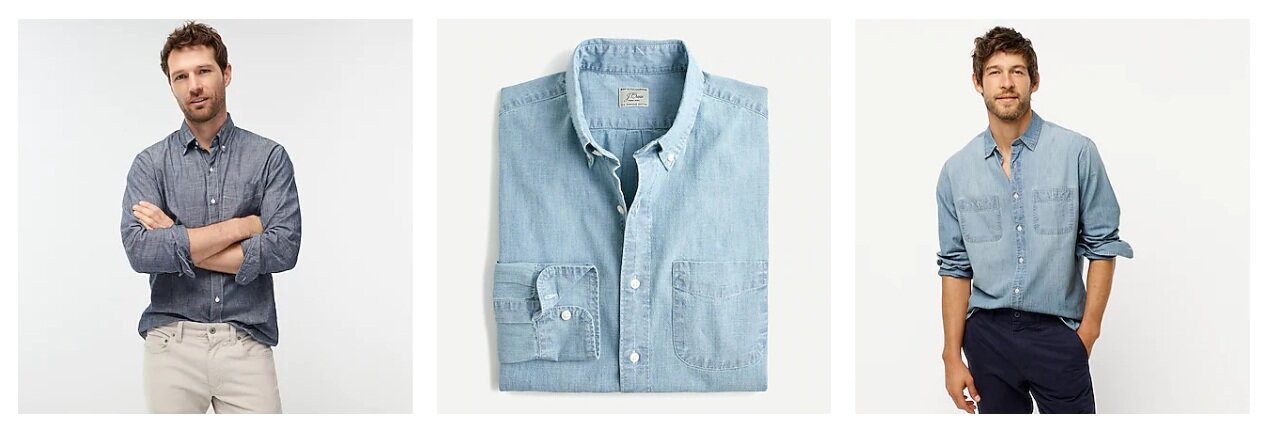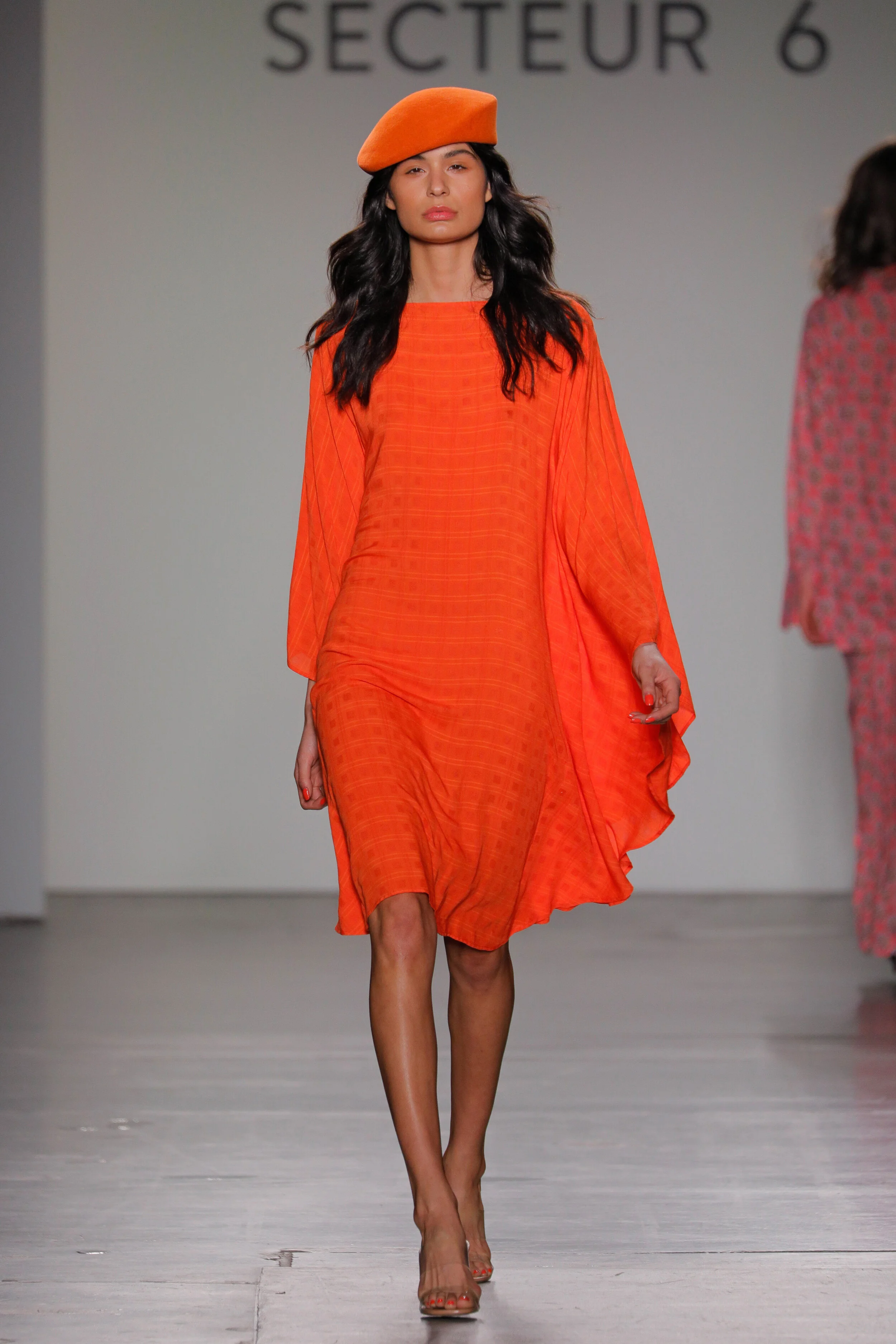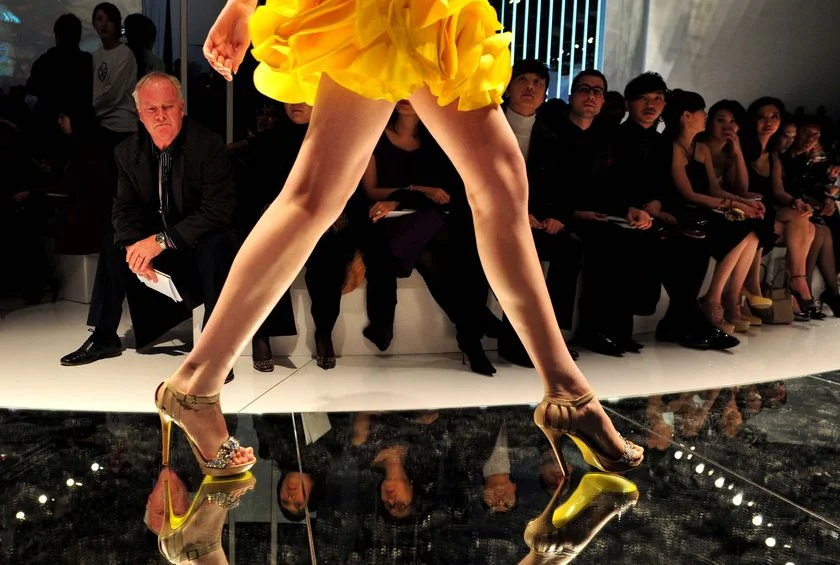Kendall Jenner Stars in Stella McCartney's Horse Power Campaign
/Kendall Jenner is front and center in Stella McCartney's Winter 2023 campaign. The campaign was shot by photographer Harley Weir in the Camargue Salt Flats of France.
Read MoreFashionado is a fashion and lifestyle brand where readers indulge in a myriad of trending topics from the world of design, art and culinary. Via the FashionadoTV digital platform, Fashionado founder, E. Vincent Martinez, hosts interviews with celebrities, fashion designers, artists and industry professionals.
Kendall Jenner is front and center in Stella McCartney's Winter 2023 campaign. The campaign was shot by photographer Harley Weir in the Camargue Salt Flats of France.
Read MoreSpiber's Brewed Protein fiber was chosen as a featured material by Kering's Material Innovation Lab (MIL) and Fondazione Pitti Discovery for the 7th edition of "S|Style sustainable style," and a collection was showcased at Sala delle Nazioni, Pitti Immagine Uomo in June.
Read MoreGoodwill Industries® of Greater NY and Northern NJ (Goodwill NYNJ) hosted its third annual Goodwill Evening of Treasures event to celebrate sustainable fashion and the power of work. Fashion icon Jenna Lyons hosted the event at 10 Hudson Yards on Wednesday, May 3, 2023.
Read MoreGOLDWIN INC. announced the launch of its Fall/Winter 2023 collection of five brands simultaneously using the structural protein material Brewed Protein™️ fiber, which has been jointly developed with Spiber Corporation since 2015.
Read More

J.Crew today announced the launch of "Re-imagined by J.Crew," an initiative to realize specific corporate social responsibility (CSR) and sustainability goals focused on products, supply chain, the planet and third-party partnerships.
Developed in support of the United Nations' Sustainable Development Goals, a universal language for corporate responsibility and framework for businesses to take action against the biggest challenges facing our world today, J.Crew's new sustainability initiatives are intended to be a force for change in the retail landscape through enhanced responsible business practices, product innovation and industry partnerships.
"We know there are many areas of sustainability that are in our power to impact positively, including tackling issues deeper in our supply chain and supporting the industry's transition to circularity," said J.Crew Group CEO, Libby Wadle. "By activating our employees, partnering with our stakeholders and listening to our customers, we are developing strategies to address the issues that will have the biggest impact on our products, supply chain and the apparel industry."
As the J.Crew brand continues to evolve, its commitment to CSR, including supporting factory workers, reducing the brand's environmental footprint and providing opportunities for associates to give back, remains a key priority. J.Crew's Re-imagined goals to achieve sustainability include:
Fabrics, Re-imagined: By 2025, 100 percent of key fibers will be sustainably sourced, including 100 percent of cotton.
Factories, Re-imagined: By 2025, over 90 percent of J.Crew cashmere and chino collections will be produced in Fair Trade Certified™ facilities.
Operations, Re-imagined: By 2025, 100 percent of plastic and paper used for packaging will be sustainably sourced, which includes a commitment to eliminate virgin plastic from all packaging, and by 2030, J.Crew operations will be 100 percent carbon neutral.
To further its CSR efforts in line with its "Re-imagined by J.Crew" initiative, J.Crew is partnering with various groups to integrate sustainability plans to reduce its environmental impact. The brand is collaborating with supply chain partners to decrease its greenhouse gas impact throughout its global supply chain and has committed to setting a science-based target with the SBTi by the end of 2021, as well as participating in the CanopyStyle initiative, a collaboration of the fashion industry to help conserve the world's remaining Ancient and Endangered Forests and forward innovative next generation solutions.
Earlier this year, J.Crew advanced its sustainability goals when it announced that 100 percent of all cashmere sweaters and non-apparel pieces from the Spring 2021 collection and onward would be produced using The Good Cashmere Standard® (GCS) certified cashmere. The GCS was developed by the Aid by Trade Foundation, a nonprofit organization aiming to improve the welfare of cashmere goats, the lives of farmers and farming communities, and the environment in which they live. Through its partnership with The GCS, J.Crew is not only able to guarantee a sustainable cashmere supply chain, but also provide full traceability for certified cashmere pieces. J.Crew also announced its partnership with the Sustainable Fibre Alliance to empower women herders in Mongolia to improve their economic and social standing.
To shop J.Crew's Re-imagined products and check out its planet goals, please visit jcrew.com.
FASHIONADO

Secteur 6 is the world’s first fully regenerative fashion brand founded by brothers Amit and Puneet Hooda. The Hoodas have played a pivotal role in establishing the Secteur 6 district of Delhi, India into a regenerative and transformative region that touts state of the art facilities with impeccable design and production. The Secteur 6 brand specializes in organic and regenerative manufacturing from dying techniques to locally sourced and organically created fabrics and textiles. The Hoodas main mission is to eliminate poverty for the people in the region, employ farmers, regenerate the environment and sell a conscious and chic collection which changes the world one look at a time.
The Hoodas set their sights on the fashion industry -- currently recognized as the world’s second-largest polluter. They tapped People’s Revolution to oversee the build-out of the Secteur 6 brand. To set the tone and direction, the Hoodas secured designer Rosemary Rodriguez -- the former creative director of Paco Rabanne, Thierry Mugler, Maje and many more.
“There is a serious change afoot and Secteur 6 is committed to changing the direction of where the earth is heading while simultaneously elevating the feminine in all her forms,” says Amit Hooda.
Secteur 6 developed and created game-changing textile innovations using bananas, rose petals, organic cotton, hemp bamboo, and plant-based viscose, all of which are utilized in the collection. This season features classic utilitarian and intentionally relaxed silhouettes, fringe embellishments, paillettes, embroideries, appliques, and more speaking to a new generation of consumers.
The collection is fun, fresh and definitely needed in the fashion world and beyond. The collection offers both See Now, Buy Now, and Fall deliveries. NYFW
FASHIONADO

The luxury market is changing because consumers are changing. The rise of environmentalism, sustainability, and digital activism mean that luxury brands can no longer take a step back and cater to what feels and looks good. They now are expected to be the world leaders when it comes to their industry. The fashion industry, in particular, has faced massive backlash over its wasteful processes. After all, when thousands have died in the process, rivers run with chemical dyes, and massive lakes dry up from cotton production, it’s no wonder that the consumer is up in arms.
They want fashion; they also want to feel like they’re leaving the world in a better place. Though the middle market is still having difficulties (budget consumers would rather prices didn’t go up) that doesn’t hold true for the luxury market. Today luxury means great quality and design, but it also means being socially and environmentally conscious.
The Rise of Environmentalism
Perhaps it started with Blue Planet, or with the concept of minimalism, or perhaps it has been building for years and only in the last few has taken worldwide attention. Plastic is demonized, luxury fashion brands have faced massive backlash over their burning policies, and the true cost of fashion has been driven home.
Fast fashion brands are putting out more sustainable collections. Clothes recycling has become more common, and the second-hand market is set to out-value the luxury market in a few short years. Luxury brands cannot afford to ignore this, not when top trending styles are often just rehashes of the past.
A jacket on the catwalk could easily be replicated by buying a retro coat online at JACK1T. A key look can be replicated by buying vintage items and tailoring them. Fashion has come full circle, so luxury brands need to offer something new.
The Rise of Diverse Beauty Representation
For luxury brands to succeed in the future, they must cater to greater representation. This means using a diverse cast of models in their campaigns, but it also means crediting and caring about the communities whose designs they have adapted or whose hands created their clothes. Dior came under fire recently for appropriating a traditional style of dress. By giving back to communities and tracing heritage where it belongs, luxury brands can give their customers more value and meaning, while also lifting up these traditional communities.
The Rise of Mobile Activism
Digital activism cannot be ignored, especially when it is how big stories spread. That is why luxury brands must be socially conscious and care about the people along their supply chain, from inspiration to production, to marketing.
What this Means for the Luxury Industry
This means that the luxury market is now expected to:
Do more for the planet
Ideally commit to a circular business model
Aim to clean emissions and output from production
Use less water
Support local communities
Use innovative materials that do not harm the planet or animals
Represent real people, not one beauty standard
Use innovation to offer personalized products
The luxury world cannot afford to slip up here, because emerging luxury fashion brands will take their place and second-hand fashion is already set to overtake them in sales.
FASHIONADO
Fashionado is a fashion & lifestyle brand where readers indulge in a myriad of trending topics from the world of fashion, design, art and culinary. Via the FashionadoTV digital platform, Fashionado founder, E. Vincent Martinez, hosts interviews with celebrities, fashion designers, artists and industry professionals.